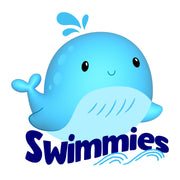Hydrotherapy
In this guide,We will explore hydrotherapy, also known as water therapy, and uncover its numerous benefits. We will explore what hydrotherapy is, why it is important, and how it can positively impact our overall well-being. Additionally, we will discuss the various conditions that can be treated with hydrotherapy, the different types of hydrotherapy available, and the steps involved in a hydrotherapy treatment. We will also provide important considerations to keep in mind before starting hydrotherapy and answer the question of how frequently hydrotherapy sessions should be conducted.
Begin an aquatic adventure with our Swimmies collections of bath toys! Delight in endless imaginative play and make a splash during your child's bath time. Immerse yourself in a vibrant and safe toy haven, ensuring a truly delightful experience. Explore our collection now and let the aquatic excitement flow!
What Is Hydrotherapy?
Hydrotherapy is a form of therapy that involves the use of water for pain relief and treatment. This therapeutic approach has been used for centuries by various cultures, including the ancient Greeks and Romans, who recognized the therapeutic properties of water. It's important to note that while hydrotherapy can be beneficial for many people, it may not be suitable for individuals with certain medical conditions.

Discover The Perfect Swimwear For Your Little Ones!At Swimmies, we are dedicated to making swimming fun and safe for your babies. Our high-quality swimwear, floaties, and bath toys are designed with their comfort and safety in mind. Explore our collection and discover the following key features and benefits:
Make a splash with Swimmies, our curated collections of essential baby water products! From bath toys that ignite imagination to safety gear that ensures worry-free water play, our Swimmies range guarantees endless fun and peace of mind. Elevate your little one's aquatic adventures today – shop Swimmies and immerse yourself in a joy! |
Why Is Hydrotherapy Important?
Hydrotherapy is important for several reasons due to its wide range of physical and mental health benefits:
Pain Relief
Hydrotherapy, especially hot water treatments, can alleviate various types of pain, including joint pain, muscle soreness, and back pain. The warm water helps relax muscles and soothe aching joints, providing natural pain relief.
Improved Circulation
The application of hot or cold water can stimulate blood circulation. This improved circulation can help deliver oxygen and nutrients to cells more efficiently, promoting overall cardiovascular health.
Reduced Muscle Tension
Immersion in warm water and the massaging effect of water jets in hydrotherapy baths can help reduce muscle tension. This is particularly beneficial for individuals with muscle spasms or chronic muscle tightness.
Enhanced Healing
Hydrotherapy can promote the healing process for injuries, particularly acute injuries like sprains and strains. Cold compresses can reduce inflammation, while warm water can increase blood flow to the injured area, facilitating the healing of tissues.
Stress Reduction
Immersing in warm water or enjoying a sauna or steam bath can induce relaxation. The calming effect of hydrotherapy can reduce stress levels, leading to a sense of well-being and mental relaxation.
Increased Range of Motion
Hydrotherapy exercises in water can improve joint flexibility and increase the range of motion. The buoyancy of water reduces the impact on joints, making it easier and less painful for people with conditions like arthritis to move.
Detoxification
Sweating induced by high temperatures in saunas or steam baths can help the body eliminate toxins through the skin, promoting a feeling of detoxification and cleansing.
Better Sleep
Relaxation from hydrotherapy can lead to improved sleep quality. Warm baths before bedtime, in particular, can help relax the body and mind, making it easier to fall asleep and stay asleep.
Rehabilitation
Hydrotherapy is often used in rehabilitation programs for individuals recovering from surgeries or injuries. The low-impact nature of water exercises allows people to rebuild strength and flexibility without putting excessive stress on their bodies.
Improved Mood
The relaxation and stress reduction provided by hydrotherapy can contribute to an improved mood. Many people find hydrotherapy to be a calming and enjoyable experience, which can positively impact their overall emotional well-being.
What Conditions Can Be Treated With Hydrotherapy?
Hydrotherapy can be helpful in managing various conditions. Some of the common conditions that can be treated with hydrotherapy include:
Muscle Weakness
Hydrotherapy provides gentle resistance that helps in strengthening muscles, making it beneficial for muscle weakness.
Developmental Delays
Hydrotherapy sessions can aid in improving coordination, balance, and motor skills in children with developmental delays.
Neurological Disorders
Hydrotherapy may be beneficial for children with neurological disorders by promoting muscle control, mobility, and overall physical well-being.
What Are The Different Types Of Hydrotherapy?
Hydrotherapy encompasses a range of techniques and approaches. Some of the commonly used types of hydrotherapy in babies and toddlers include:
Aqua Therapy
This involves exercises and movements in a specially designed pool with water of varying temperatures, buoyancy aids, and equipment.
Whirlpool Therapy
Whirlpools use warm water and pressurized jets to provide relaxation, improve circulation, and relieve muscle tension.
Contrast Therapy
Contrast therapy alternates between hot and cold water to boost circulation, reduce inflammation, and promote healing.
What Are The Steps Involved In A Hydrotherapy Treatment?
A standard hydrotherapy session often includes the following stages:
- Warm-Up: Begin with gentle stretching exercises outside of the water to warm up and prepare the muscles for the hydrotherapy session.
- Water Entry: Introduce the child slowly and gradually into the water, ensuring their comfort and allowing them to adjust to the temperature.
- Guided Exercises: Engage in guided exercises and movements that target specific muscle groups, coordination, and motor skills. These exercises are tailored to the child's needs and abilities.
- Water Play: Incorporate fun activities and games during the hydrotherapy session to make it enjoyable and engaging for the child.
- Cool-Down: Gradually decrease the intensity of exercises and movements, allowing the child's body to cool down before exiting the water.
What Are Some Important Considerations Before Starting Hydrotherapy?
Before starting hydrotherapy sessions with your child, consider the following factors:
- Consultation with a Professional: It is crucial to consult with a pediatrician or a qualified hydrotherapist to determine if hydrotherapy is suitable for your child's needs and health condition.
- Facility and Equipment: Ensure that the hydrotherapy center or facility you choose is well-equipped, hygienic, and follows safety protocols.
- Qualified Professionals: Check the qualifications, experience, and expertise of the hydrotherapists who will be working with your child.
- Medical History and Clearance: Provide detailed information about your child's medical history to the hydrotherapy provider and obtain proper clearance from healthcare professionals if necessary.
Final Thoughts On Hydrotherapy
Hydrotherapy can provide numerous benefits for babies and toddlers, ranging from physical development and sensory stimulation to water safety skills and bonding time. The therapeutic power of water offers a safe and enjoyable environment for children to explore and enhance their overall well-being. By incorporating hydrotherapy into your child's routine, you can create a fun and enriching water play experience. Remember to consult with professionals, follow safety guidelines, and provide your child with comfortable swimwear and engaging bath toys to make their hydrotherapy sessions truly enjoyable.
At Swimmies, we understand the importance of hydrotherapy for the development of your little swimmer. That's why we offer a wide range of swimming gear for babies, including swimwear, floaties, and bath toys. Browse our selection of high-quality products designed to enhance your child's hydrotherapy experience and make water play even more enjoyable.
Experience worry-free water fun with our Swimmies collections of baby floaties! Ensure your little one's safety and enjoyment in the water with our high-quality and adorable floaties. Immerse yourself in secure splashes and unforgettable moments. Shop Swimmies now and let the aquatic adventures begin!
Frequently Asked Questions About Hydrotherapy
What should I wear during a hydrotherapy session?
During a hydrotherapy session, it is recommended to wear comfortable swimwear that allows easy movement in the water. Swim diapers are necessary for babies and toddlers to maintain hygiene. Additionally, the hydrotherapy provider may have specific requirements or recommendations regarding swimwear, so it's always good to check with them beforehand.
Is hydrotherapy safe?
Yes, hydrotherapy is generally considered safe when conducted under the supervision of trained professionals. However, it is important to consult with a healthcare provider or hydrotherapy expert to ensure that it is safe for your particular situation or for your child.
Does hydrotherapy require a medical referral?
In most cases, a medical referral is not required to start hydrotherapy. However, if your child has certain medical conditions or you have any concerns about their health, it is best to consult with their healthcare provider before beginning hydrotherapy sessions.
Are there any side effects of hydrotherapy?
When conducted safely and by qualified professionals, hydrotherapy typically does not cause any adverse side effects. However, some individuals may experience temporary skin dryness, redness, or mild discomfort. It is essential to communicate any concerns or discomfort experienced during or after hydrotherapy sessions with the hydrotherapy provider.
Can hydrotherapy help with sports injuries?
Yes, hydrotherapy can be beneficial for individuals recovering from sports injuries. The buoyancy of water reduces pressure on joints and muscles, allowing for gentle rehabilitation exercises that aid in healing and improving strength and flexibility. However, it is important to consult with a healthcare professional or a sports therapist to determine if hydrotherapy is appropriate for your specific injury and recovery needs.
Do I need to know how to swim for hydrotherapy?
No, you do not need to know how to swim in order to participate in hydrotherapy. Hydrotherapy sessions are typically conducted in shallow water or with flotation devices, and the focus is on therapeutic exercises and movements rather than swimming skills. Trained professionals will be present to ensure safety and provide guidance throughout the session.
Was hydrotherapy used for mental health?
Historically, hydrotherapy has been used as a form of treatment for mental health conditions. It was believed that water therapies could have a calming and soothing effect on individuals. However, modern approaches to mental health treatments have evolved, and hydrotherapy is not typically used as a primary treatment for mental health conditions. It is best to consult with mental health professionals for appropriate therapies and interventions.
Is hydrotherapy suitable for pregnant women?
Hydrotherapy can be a safe and beneficial form of exercise for pregnant women. The buoyancy of water helps to alleviate pressure on joints and offers relief from common pregnancy discomforts. However, it is important to consult with a healthcare provider before starting hydrotherapy or any other exercise regimen during pregnancy to ensure that it is safe for both mother and baby.
Is hydrotherapy suitable for children?
Yes, hydrotherapy can be suitable for children, especially those with specific needs such as physical disabilities, developmental delays, or medical conditions that may benefit from aquatic therapy. It is crucial to consult with healthcare professionals or hydrotherapy experts to determine if hydrotherapy is appropriate and safe for your child.
Can hydrotherapy be done at home?
While some hydrotherapy exercises and techniques can be performed at home under the guidance of trained professionals or with appropriate equipment, it is generally recommended to seek hydrotherapy sessions at specialized facilities or centers. These facilities provide the necessary expertise, equipment, and controlled environment to ensure effective and safe hydrotherapy sessions.

